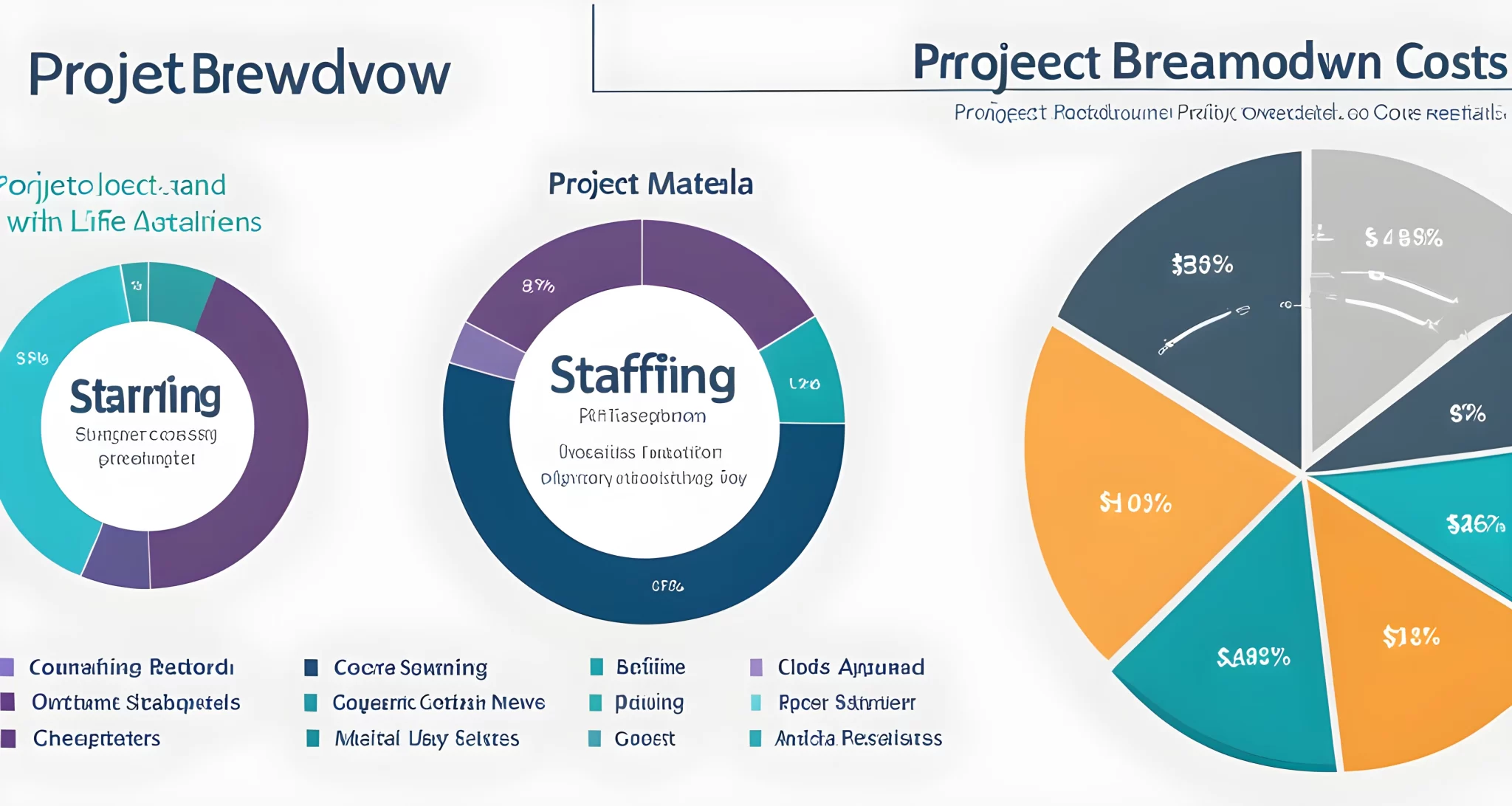Define the Scope and Expectations
Effective financial management in consulting projects begins with clearly defining the scope and expectations. This step is crucial for setting the foundation for a successful project. When defining the scope and expectations, it is important to establish the client’s goals, deliverables, timeline, budget, and roles and responsibilities for both parties. A detailed scope of work helps to prevent scope creep and conflicts, while also setting realistic and measurable goals and milestones.
Setting Clear Goals
When embarking on a consulting project, it is essential to have a clear understanding of what the client wants to achieve. By clearly defining the goals of the project, both parties can align their efforts towards achieving specific outcomes. Whether it is improving financial performance, implementing new processes, or restructuring operations, having well-defined goals provides a roadmap for the project.
Establishing Deliverables
Defining the specific deliverables of the project helps to manage expectations and ensure that both parties are on the same page. This may include reports, analyses, recommendations, or any tangible outcomes that the client expects from the consulting engagement. Clearly outlining these deliverables helps to avoid misunderstandings and ensures that the client’s needs are met.
Timeline and Budget
Establishing a realistic timeline and budget is essential for effective financial management in consulting projects. By setting clear deadlines and allocating resources efficiently, both parties can work towards meeting project milestones within the agreed-upon timeframe and budget constraints. This also helps to avoid any cost overruns or delays that may impact the financial aspects of the project.
Roles and Responsibilities
Defining the roles and responsibilities of both the consulting team and the client’s internal stakeholders is crucial for effective project management. Clarity around who is responsible for what tasks ensures accountability and transparency throughout the project.
In conclusion, by clearly defining the scope and expectations of a consulting project, both parties can effectively manage their finances and work towards achieving successful outcomes. This lays a solid foundation for addressing financial challenges in consulting engagements Venture capital impact on consulting.

Understand Project Costs
Understanding project costs is a crucial aspect of effective financial management in consulting. It is essential to have a comprehensive understanding of the costs associated with delivering a project or program. This includes accounting for both expected and unexpected expenses. Setting realistic budgets that cover these costs is vital for effective financial management and to ensure profitability for the consulting firm.
When it comes to understanding project costs, it’s important for consulting firms to take into account various factors such as labor costs, overhead expenses, materials, and any other direct or indirect costs associated with the project. By having a clear understanding of these costs, consulting firms can accurately estimate the total project cost and set appropriate pricing for their services.
Having a thorough understanding of project costs also allows consulting firms to identify potential cost-saving opportunities. By analyzing the various components of project costs, firms can identify areas where they can streamline processes, reduce waste, or negotiate better deals with suppliers and vendors.
Additionally, understanding project costs enables consulting firms to make informed decisions about resource allocation. This includes allocating funds for staffing needs, technology investments, and other resources required to successfully deliver the project.
Furthermore, having a clear understanding of project costs allows consulting firms to effectively communicate with clients about pricing and budgeting. Transparent communication about project costs helps build trust with clients and ensures that both parties are on the same page regarding financial expectations.
In conclusion, understanding project costs is a fundamental aspect of financial management in consulting. It enables firms to accurately estimate total project costs, identify cost-saving opportunities, make informed decisions about resource allocation, and effectively communicate with clients about pricing and budgeting. By prioritizing the understanding of project costs, consulting firms can enhance their financial management practices and ultimately drive profitability.
For more information on overcoming financial obstacles for business growth, check out Overcoming business challenges.

Cash Flow Management
Cash flow management is a crucial aspect of running a successful consulting business. It involves monitoring the company’s cash position and using online tools to track incoming and outgoing funds in real-time. By adopting a proactive approach to cash flow management, consulting firms can react quickly to new financial challenges and avoid potential financial damages.
One effective way to manage cash flow is by staying on top of the company’s financial position at all times. This means regularly monitoring the balance of incoming and outgoing funds, as well as keeping an eye on any potential fluctuations in cash flow. By doing so, consulting firms can identify any potential issues early on and take the necessary steps to address them before they become major problems.
In addition, using online tools to track cash flow in real-time can be incredibly beneficial. These tools allow for easy access to up-to-date financial information, which is essential for making informed decisions about the company’s finances. By leveraging technology, consulting firms can gain a better understanding of their cash position and make more strategic financial decisions.
Furthermore, effective cash flow management can help consulting firms avoid potential financial damages. By staying proactive and monitoring cash flow closely, companies can identify any potential shortfalls or surpluses early on and take appropriate actions to mitigate any negative impacts.
Ultimately, by adopting a proactive approach to cash flow management, consulting firms can better position themselves to address financial challenges effectively. This will allow them to navigate through uncertain economic times with greater ease and ensure long-term success for their business.
For more information on effective risk management strategies for consulting firms, check out Consulting firm risk assessment.

Adopt Financial Management Tools
In order to effectively address financial challenges in consulting, it is essential to adopt financial management tools that can streamline and optimize your business processes. Implementing a robust financial management system that includes budgeting, invoicing, accounts receivable, and accounts payable processes is crucial for success in the consulting industry. This allows for better control over spending and improved customer relations.
By utilizing budgeting tools, consulting firms can accurately track and manage their expenses, ensuring that they stay within budget and avoid unnecessary overspending. Moreover, invoicing tools enable consultants to efficiently bill their clients for services rendered, ensuring timely payments and steady cash flow.
Accounts receivable and accounts payable processes are equally important in maintaining a healthy financial position. Managing accounts receivable effectively ensures that the firm receives payments on time, while efficient accounts payable processes help in managing vendor relationships and maintaining good credit terms.
It’s important to note that adopting these financial management tools not only helps in managing day-to-day operations but also provides valuable insights into the firm’s financial health. This allows consultants to make informed decisions regarding future investments and growth opportunities.
For more information on how to manage debt wisely within your consulting business, check out this article on Stable Debt Management Tips.
In conclusion, adopting financial management tools is crucial for addressing financial challenges in consulting. These tools not only help in streamlining business processes but also provide valuable insights into the firm’s financial health, ultimately contributing to its long-term success. By implementing these tools, consulting firms can improve their control over spending, enhance customer relations, and pave the way for internal growth and development.
So what are you waiting for? Start implementing these financial management tools today and take your consulting business to new heights!

Internal Growth and Development
Financial consulting firms often provide opportunities for internal growth and development. This is essential for employees to enhance their skills and contribute to the overall success of the firm. In order to address financial challenges in consulting, it is important for employees to continuously improve their expertise and knowledge in various areas of finance.
Training Programs
Financial consulting firms typically offer training programs to help employees stay updated with the latest industry trends and best practices. These programs can cover a wide range of topics including financial analysis, investment strategies, risk management, and regulatory compliance. By participating in these training sessions, employees can develop a deeper understanding of financial concepts and improve their decision-making abilities.
Mentorship Programs
Mentorship programs are another valuable resource for internal growth and development within financial consulting firms. By pairing junior employees with more experienced professionals, mentorship programs provide an opportunity for knowledge transfer and skill development. This can help employees navigate complex financial challenges and gain valuable insights from seasoned experts within the firm.
Advancement Opportunities
In addition to training and mentorship programs, financial consulting firms also offer advancement opportunities for employees who demonstrate exceptional performance and potential. These opportunities may include promotions to higher positions, leadership roles on specific projects, or the chance to lead a team of consultants on a client engagement.
By actively participating in these internal growth and development initiatives, employees can expand their expertise, strengthen their professional network, and position themselves for long-term success within the firm.
To learn more about addressing financial challenges in consulting, check out our article on Fixing Small Company Investment Challenges.
FAQ
What is the importance of defining the scope and expectations in consulting projects?
Defining the scope and expectations helps to avoid scope creep, miscommunication, and conflicts later on. it also sets realistic and measurable goals and milestones for the project.
Why is understanding project costs crucial for effective financial management?
Understanding project costs enables accurate budgeting and helps in managing both expected and unexpected expenses, ensuring that the project remains financially viable.
How can cash flow management benefit consulting firms?
Regularly monitoring cash position and using financial management tools can help firms react quickly to financial challenges and avoid serious damages, improving overall financial health.
What are the benefits of internal growth and development for financial consulting firms?
Internal growth and development provide opportunities for firms to expand their expertise and services, leading to increased value for clients and improved financial performance.
